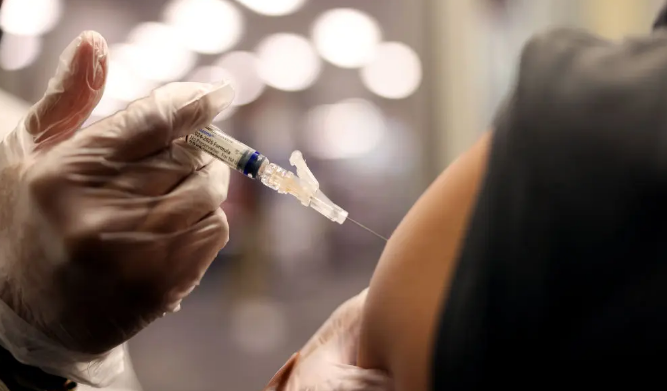The U.S. federal government has announced a major shift in how updated COVID-19 vaccines will be reviewed and approved, requiring manufacturers to conduct additional clinical studies for people not considered at high risk of severe illness.
The policy change, revealed in a May 20 briefing by the U.S. Food and Drug Administration (FDA), marks a departure from the current fast-tracked process used since 2023, where yearly COVID-19 vaccines have been approved without the need for new clinical trials—mirroring the approach used for annual flu shots.
Under the new guidance, pharmaceutical companies seeking approval for updated vaccines will need to carry out six-month randomized trials for adults aged 50 to 64, measuring outcomes such as reduced symptoms, hospitalizations, and death. These findings will then be used to support use in healthy individuals as young as six months.
“This is a significant step to ensure the vaccines continue to provide meaningful benefit,” said Dr. Vinay Prasad, head of the FDA’s Center for Biologics Evaluation and Research. “Especially as more Americans have developed some level of natural immunity from prior infections.”
For individuals at high risk of severe COVID-19—such as those over 65, people with chronic health conditions, and the immunocompromised—the approval process remains unchanged. Vaccine makers can continue to rely on immunological data rather than extensive new trials. The FDA estimates that 100 to 200 million Americans fall under this category.
The FDA’s definition of “high risk” remains broad, encompassing conditions such as asthma, diabetes, depression, and even physical inactivity—a subjective measure that may leave eligibility decisions to the discretion of individual providers.
Manufacturers have responded cautiously. Pfizer said it is reviewing the FDA’s new guidance but stands by the safety and efficacy of its vaccine, which it claims has been administered to more than a billion people worldwide. Moderna welcomed the clarity, pledging to continue working closely with the agency.
While vaccine makers prepare to adjust, the policy shift may pose new challenges. Experts warn that the required trials could be large and costly due to the mild nature of many COVID-19 cases, especially among the healthy and previously infected.
The move comes amid waning public interest in COVID-19 vaccination. As of April 2025, only 23% of U.S. adults had received the latest booster shot—a figure Prasad pointed to as evidence of growing skepticism about the vaccines’ effectiveness.
Public health officials argue that even with lower uptake, vaccines remain a key tool in controlling the virus. They credit vaccinations, along with previous infections, for contributing to the steady decline in hospitalizations and deaths.
The new requirements aim to reinforce public trust by ensuring vaccines are both effective and necessary, especially for the millions who may not see themselves at high risk but remain vulnerable to future variants.









































